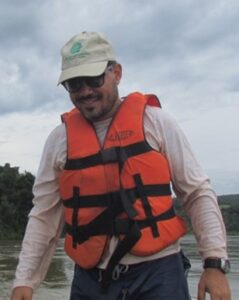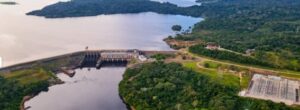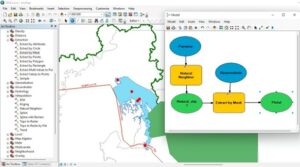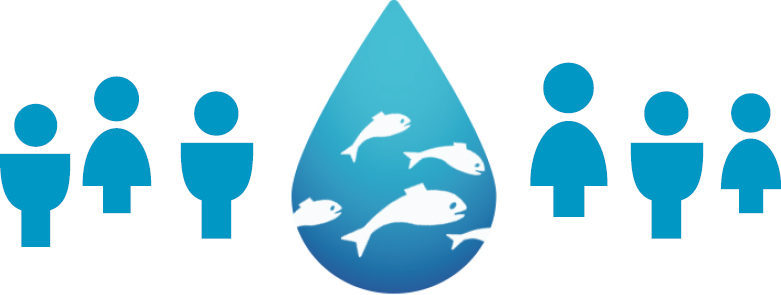Sustainable aquaculture in an Amazonian River
In search for sustainable aquaculture in small and medium hydroelectric reservoirs of an Amazonian River: the case of the Jamari River Aquaculture Project
 by Dr. Carlos Eduardo Mounic Silva
by Dr. Carlos Eduardo Mounic Silva
[dss-hidden]Fedral University of the Santa Catarina State (UFSC) & Federal Institute of the Rondônia State (IFRO)
Extensive cattle ranching is highly unsustainable for the Amazon, due to its high contribution to greenhouse gas emissions thus global climate change. In addition, it contributes greatly to the current deforestation of rainforest and significant biodiversity losses.
In the Amazon, aquaculture emerges as a safeguard alternative to serve both economic income and the structuring of a healthy and perennial production chain. Such a change, “Cattle to fish”, may face key challenges in mitigating environmental impacts, managing social conflicts, applying efficient and environmentally friendly techniques, developing sustainable inputs, increasing marketing and consumption.
Prior to the idealization of aquaculture as a safeguard of the Amazon, a question is fundamental: “WHAT DOES AQUACULTURE REQUIRE IN THE AMAZON?”
In this context, the Jamari River, is seeing the development of a site-selection project for small-scale aquaculture in hydroelectric reservoirs with considerations on the environmental aspects of these freshwater ecosystems.

The Jamari River is a tributary of the great Madeira River, and is located in the Western Brazilian Amazon near Porto Velho city. It has intensive agricultural activity, unregulated fishing, and some of the worst hydroelectric projects (environmental costs versus electric energy benefits) in the Amazon Basin.
The river is possibly one of the only medium-sized Amazonian River systems that presents in a Hydroelectric Power Plant with a large reservoir (Samuel Dam Reservoir), associated with three small hydroelectric power plants (Monte Negro, Jamari and Canaã Small Dam Reservoirs).
The impacts caused by these dams, especially Samuel Dam, on fisheries resources and on riverine and fishing communities in the Jamari River are considered tremendous, which must be minimized and/or managed by public actions. Thus, our research team proposed a project to provide alternative income to the public which can add value to the production chains established in the Brazilian Western Amazon (e.g. inland finfish aquaculture).

The project has three stages: 1) mapping of environmental variables of these reservoirs through geographic information systems (GIS); 2) on-site validation of these environmental variables, with the consideration of the wide ranges of water level variation according to the Amazon hydrological cycle and 3) dissemination of the maps produced for the riverside and fishing communities of the Jamari River basin, as a public target of the actions of this project.
Some Brazilian research institutes are participating in this project: Federal Institute of the Rondônia State (IFRO); Brazilian Agricultural Research Corporation (EMBRAPA); Federal Institute of Santa Catarina State (IFSC); Federal University of Santa Catarina State (UFSC) and Agricultural Research and Rural Extension Company of Santa Catarina State (EPAGRI-SC). The project actions began in December 2021, and will last for 2 years. The goal is to present the complete maps for the selection of sites for aquaculture in these reservoirs by the end of 2023, beginning of 2024.
The project has a great potential for the sustainable development of the Amazon, as its actions are directly relevant to a few Sustainable Development Goals of the United Nations by promoting the production of animal protein (fish) in the Amazon Basin with zero deforestation in the major rainforest.
More information: carlos.silva@ifro.edu.br.
Project Staff:
- Carlos Eduardo Mounic Silva, Dr. – Coordinator – Federal Institute of the Rondônia State (IFRO) and Federal University of the Santa Catarina State (UFSC);
- Raica Esteves Xavier, Dr. – Vice-coordinator – Federal Institute of the Rondônia State (IFRO);
- Flávio Boscatto, Dr. – Senior Consultant for GIS – Federal Institute of the Santa Catarina State (IFSC)
- Júlia Cucco, M.Sc. – Senior Consultant for GIS – Federal Institute of the Santa Catarina State (IFSC)
- Flávia Tavares Mattos, Dr. – Senior Consultant for Aquaculture – Brazilian Agricultural Research Corporation (EMBRAPA);
- Alex Pires de Oliveira Nuñer, Dr. – Senior Consultant for Aquaculture – Federal University of the Santa Catarina State (UFSC);
- Luis Garbossa, Dr. – Senior Consultant for Hydrodynamics Modelling – Agricultural Research and Rural Extension Company of Santa Catarina State (EPAGRI-SC).
